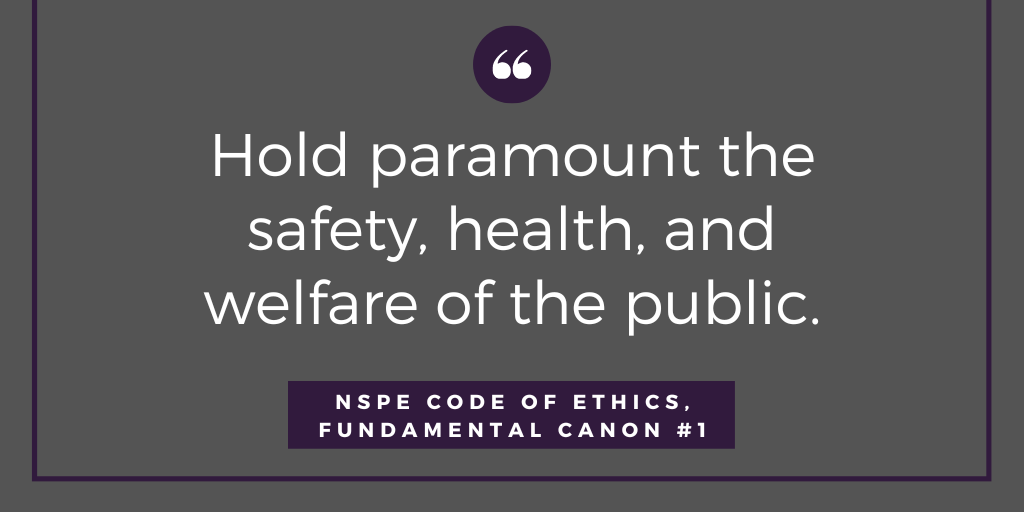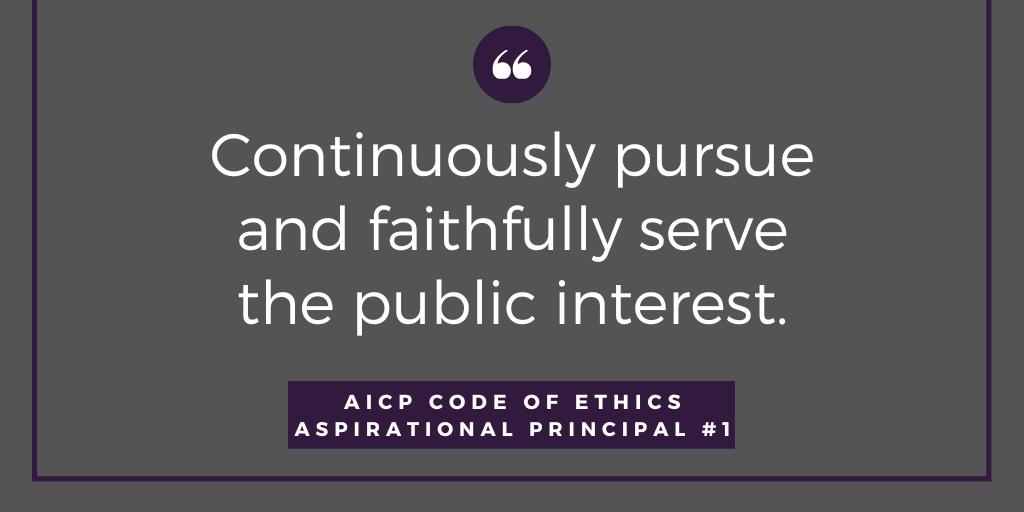Are your experts planning & designing deadly infrastructure?
You can help your local planners & engineers follow the code of ethics they swore to uphold.
There’s nothing unethical about two smart people having a disagreement. It’s surprising when two people seem to agree on everything because you wonder if they’re capable of independent thought or simply parroting ideas they’ve picked up.
What will make your jaw drop is realizing professionals regularly violate their code of ethics.
They aren’t hiding in the shadows, it’s happening all around us all the time. My guess is the vast majority think they’re doing the right thing.
Engineers
Professional engineers are expected to exhibit the highest standards of honesty and integrity. Engineering has a direct and vital impact on the quality of life for all people. So says the National Society of Professional Engineers in the preamble to their code of ethics. This is a code that engineers swear to uphold when they get licensed.
Whether it’s roads, bridges, houses, churches, schools, rocket ships, or cell phone towers, you’re counting on a group of experts to plan, design, and construct stuff that won’t fail. (At least not for a while.)
I encourage you to read the whole code, especially if you’re looking for ways to get leverage as a normie in a public hearing for an infrastructure project. Of all the important nuggets, I point people to Fundamental Canon #1. Or in plain language, “if you remember anything, dear engineer, let it be this.”
Planners
Professional planners are expected to commit themselves to making ethical judgments in the public interest balancing the many competing agendas with careful consideration of the facts and context, informed by continuous, open debate.
So says the American Institute of Certified Planners code of ethics. These rules of professional conduct are even broader than NSPE’s because they apply beyond staff planners at local government or consulting firms. It includes other people who might not call themselves professional planners, but are involved in the public planning process (e.g. economic development director).
Generally, planners are known as the group of experts who writes and enforces rules that govern how land is used, size of developments, where utilities are needed, and what type of street network will be constructed. They set the framework for what the engineers do.
Planners and engineers have some sibling characteristics.
Part of the same family,
share some interests,
fight when mom and dad aren’t looking, and
blame the other when something goes wrong.
If you’re on a mission to promote happy, healthy communities (i.e. walk- and bike-friendly), then familiarize yourself with the NSPE and AICP codes of ethics. Using these as tools of persuasion and peer pressure might not be effective with engineers and planners directly, but they take on a different life in the court of public opinion.
What do you do with this information?
Journalists are always looking for a scoop. Politicians are always looking for the path to reelection. Pitch a tight story that will motivate each to take action. Remember professional planners and engineers swore to serve the public interest, which means they should prioritize things like:
Remove travel projections and level of service as analysis tools. That duo interferes with safe design and promotes car dependency.
Remove policy restrictions on front yard business. Liberate your local small business owners.
Remove land use rules that prohibit compact development. Once you start looking into how many good ideas are squashed by zoning, you won’t stop facepalming.
Replace humongous stop light intersections with modest roundabouts. The safest form of intersection nearly eliminates fatal crashes. That alone should be regular headline news.
Repurpose public right-of-way to accommodate bicycling on physically protected networks. Show me the suburban or city network and I’ll show you too many car lanes.
Ethics violations aren’t just over-the-top actions like bribery, assault, or lying. That’s why I point you to the issues both NSPE and AICP think are worth talking about first: serving the public interest.
This raises some tricky and contentious questions. Should an engineer be sued for negligence for designing a street that led to crashes? Should a planner be sued for lost wages because they couldn’t operate a business from their garage?
Try finding an optimistic course of action. Rather than making a list of agencies to bring to court, make a list of positive policies, plans, and projects that do more good than harm. Then use the code of ethics as one means of persuasion.




